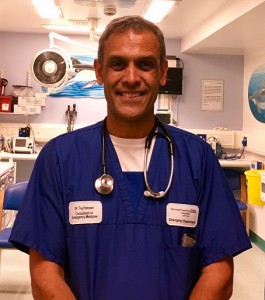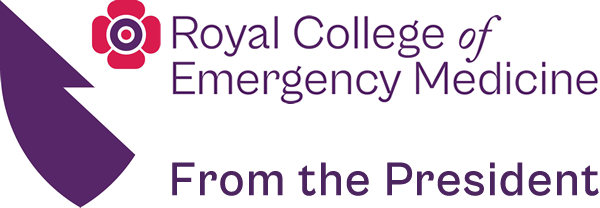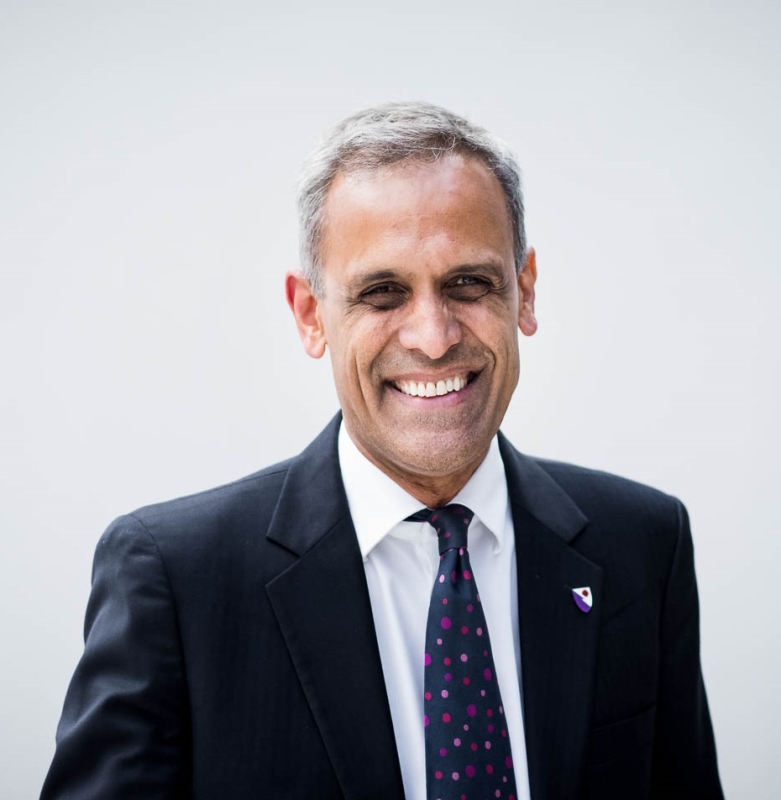 Welcome to this month’s reflections of College news and events. A month indeed to look back on 2017 and touch on some of the real highlights that have marked the College calendar as well as noting the ongoing battles that we face.
Welcome to this month’s reflections of College news and events. A month indeed to look back on 2017 and touch on some of the real highlights that have marked the College calendar as well as noting the ongoing battles that we face.
Here are 10 notable areas that we made some great progress on your behalf ;
1. Strategy – The new College strategy RCEM Vision 2020 launched earlier this year and we hope will help to drive real positive change in the care we deliver to our patients and the environment in which we and our teams are able to work in. I am grateful to Executive and Council for all their help and support as well as the Vice Presidents in the devolved countries who have created or are planning on tailored versions.
2. Committee re-structuring and focus – In what has been a rather Herculian task we have reviewed the structure and reporting processes of our committees to make them more streamlined and transparent. College Council will have a better view of the work of these committees and I hope we can also showcase their work better to you our members. Particular thanks to Gordon Miles, Lisa Munroe-Davies, Chris Moulton and Ian Higginson.
3. How to minimise crowding in our EDs – We know that this is a problem that has worsened markedly in the last 3-5 years. The main reasons are due to increased demand and the inadequacy of the acute bed base in hospitals, the continued and steady decrease in social care funding affecting the elderly in the community and in England certainly the lamentable planning of many STP programmes around reconfiguration proposals.
The College has continued to lobby hard at every level to influence policymakers. In addition, excellent RCEM resources on mitigating ED crowding can be found on the College website as well as the collaborative work we have done with NHS Improvement in England that launched in July this year – Focus on improving patient flow, where they have taken on many of our recommendations. Thanks to Adrian Boyle and his team for all their hard work in this area. Of course the solutions are clear! The major challenge as we know is basically lack of money for the NHS – predicted by the Kings Fund to fall drastically behind the European average in terms of GDP spend over the next three years unless urgent action is taken by our governments. The public will rightly demand that our senior politicians eventually need to take note & action even if Brexit occupies much of their time at Parliament!
4. A comprehensive workforce strategy – As highlighted last month, a major achievement for us has been the launch in October of Securing the future workforce for emergency departments in England. This sets out for the first time how we can and will grow the clinical workforce at both a junior and senior level over the medium and long term. In addition, it describes ways in which we intend to put strategies in place to mitigate attrition and improve the quality of training in the specialty, as well as better support for SAS doctors. Finally, it recognises for the first time work we will do to create better retention strategies for both young consultants starting out and the older consultant and SAS doctor to help create long successful careers for them.
It is however only a strategic framework and the true test will come with the implementation plan – no doubt there will be many beartraps ahead. There is already conflict between HEE & NHSE on how the increase in training numbers should be best funded, for example. Needless to say we will ensure that we work collaboratively with all those who signed the strategy (the three most senior CEOs in the NHS in England) and if necessary hold them to account on their promises. I will update you with a three monthly report in this regard for the next two years. I will also be working closely with the Vice Presidents in the devolved countries so that we can have an equally comprehensive framework throughout the UK.
5. Examinations and education – At the heart of College activity is the work that our relevant committees do to train and help maintain standards to produce excellent emergency physicians and now also ACPs. I am grateful especially to Jason Long, Emily Beet, Julia Harris and the many others on their committees for all the amazing work they do often in their own time in this regard. Space does not allow to describe all the great progress that has been made this year but please visit the RCEM website to find out more.
We are also very grateful to all of you who examine at MRCEM & FRCEM level and would encourage as many of you as possible to take on an examining role if you have not done so yet. Your trainees will appreciate it immensely. In addition, I believe it truly helps enhance the quality of the senior ED team in your departments and goes a long way to engendering the right culture for the system you work in. We continue to work hard to make induction to be an examiner as easy as possible and the four CMOs in the UK have all written to Trusts encouraging release for such activity.
6. Other committee highlights – There is so much to tell but I wanted to mention a few key highlights. Alasdair Gray and colleagues have done excellent work on devising our new RCEM research strategy – please visit the R&P page to find out more. Thanks to Emma Redfern and colleagues on the Safer Care Committee for all their work and for helping to drive the concept of safety toolkits or their equivalent for wider dissemination throughout our EDs in England and also we hope the other nations. To Chris Walsh, Simon Laing and their team for continuing to drive RCEMLearning to new heights this year. And to the new Special Interest Groups / committee Chairs and their teams that we launched this year – Tara Sood (Ambulatory Emergency Care), Ling Harrison ( Public Health EM), Jay Banerjee ( Frailty & Geriatric EM) and Dave Snow (Remote & Rural EM). No doubt we will hear much more in 2018 from them all.
We are just finalising a new RCEM International strategy (much more to tell in early 2018) and the newly formed Global EM committee chaired by Giles Cattermole will help in leading that. We have made great progress in many of the SAARC countries this year, especially India and Pakistan, as well as parts of Africa. If you want to know more about the SAARC work, please do come to the study day on 13 December at the College – it promises to be excellent!
7. RCEM Foundation – This was the year that we launched the Foundation and am very grateful to John Heyworth (batting into his fourth decade for the specialty!) for being the first Chair. Please do visit the RCEM Foundation website to find out more for what will be one of the most exciting of the College projects going forwards.
8. Communications, regional & national meetings – We know as a College based in London that we need to find constantly better ways in which to communicate, connect and gain feedback from you as our members so that we can do the best we can for you. This year saw superb regional and national meetings and I hope next year to attend and support as many as I possibly can. I also hope we can expand the ways in which we communicate with you all – more to follow in early 2018.
So my thanks to the regional and national Chairs for all they do. Please do find your way to help support them in any small way you can. It is a tough job done mainly in their own time.
9. RCEM Annual Awards – The inaugural RCEM Awards were a real success this year and congratulations to the winners from Derby, Exeter, Brighton & Coventry & Warwick. It’s a real tribute to the ingenuity, creativity and innovation of emergency physicians to have achieved so much when we are all under such pressure. Showcasing excellent practice was the main aim of this strategy and I think in our first year it delivered really well. We will be publishing the work of the winners soon. Next year promises to be even better – so start planning your applications early!
10. 50th Celebrations & the RCEM Book – Little did I believe that we could celebrate so well (and with no real budget!) as we did on the 50th anniversary of the specialty. Thank you to all who contributed so well from across the UK & Ireland as well as all over the world. We certainly did Maurice Ellis and his 8 other colleagues who met to set up the CSA on 12th October 1967 proud. My thanks to Diana Hulbert, Sam McIntyre, Luke O’Reilly, Gerardine (as ever!), Pam Bollen and the many others. Finally my huge thanks to Jonathan Marrow for being the lead editor of EM at 50 – 50 journeys to the RCEM. He did a masterful job. If you haven’t got your copy as a permanent memento of what a great specialty you are a part of – order it now from RCEM! Proceeds to the Foundation.
Finally, of course thank you for the job that you all do under some pretty tough conditions and the ways that many of you support the College in even a small way. There is much to be pleased about this year but much more that we need to do to make things better for our patients.
An early Seasons Greetings to you all. I hope you get some quality time with your families and look forward to an excellent 2018!
Dr Taj Hassan
President, RCEM


